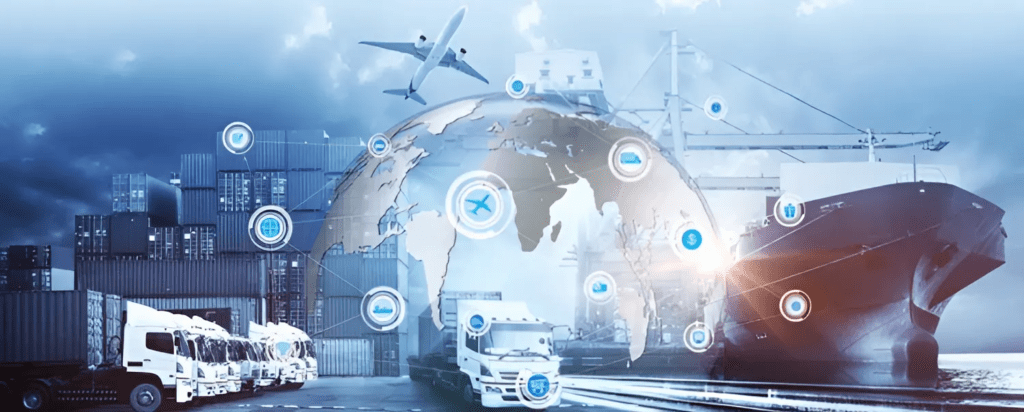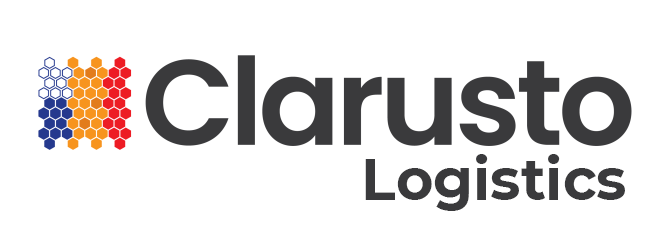
In the intricate web of modern logistics, the ever-evolving landscape of global trade deals presents a formidable challenge for businesses seeking to navigate international markets efficiently and compliantly. As the interconnected world continues to shrink, understanding and harnessing the complexities of trade agreements have become paramount for companies striving for success on a global scale.
Understanding the Importance of Global Trade Deals in Modern Logistics
Implications of Global Trade Deals in Modern Logistics. The interconnected world of global trade deals plays a pivotal role in shaping modern logistics. These agreements facilitate the movement of goods across borders, promoting economic growth and fostering international cooperation. By standardizing trade practices and reducing barriers, global trade deals streamline supply chain operations and enhance efficiency.
Moreover, global trade agreements offer businesses access to diverse markets, enabling them to expand their reach and explore new growth opportunities in Modern Logistics. Embracing these agreements not only boosts competitiveness but also encourages innovation and collaboration on a global scale. The interconnectedness fostered by these deals paves the way for a more prosperous future, where businesses can thrive in an increasingly interconnected world, supported by efficient and adaptive modern logistics practices.
Navigating the Legal Framework of International Trade Deals in Modern Logistics
Navigating the Legal Framework of International Trade Deals: Embarking on a journey through the legal intricacies of international trade deals is akin to navigating a labyrinth of regulations and agreements that govern the global marketplace. These trade pacts, often negotiated over years by diplomats and policymakers, establish the rules of engagement for countries involved in cross-border trade. Understanding the legal framework is paramount for businesses seeking to expand their operations across borders.especially in the realm of modern logistics, where compliance with these agreements ensures smooth, efficient, and legally sound international operations.
At the heart of international trade deals lie complex legal texts that outline tariffs, quotas, rules of origin, and dispute resolution mechanisms. Each agreement presents a unique set of challenges and opportunities for businesses looking to capitalize on global markets. By delving into the specifics of these legal documents, organizations can unlock new avenues for growth while staying compliant with international laws. Embracing the legal framework not only ensures adherence to regulations but also fosters trust and transparency among trading partners.especially in the context of Modern Logistics. Embracing the legal framework not only ensures adherence to regulations but also fosters trust and transparency among trading partners, crucial for seamless and efficient Modern Logistics operations.
Key Players and Organizations Involved in Global Trade Agreements
The landscape of global trade agreements is shaped by a myriad of key players and organizations that play pivotal roles in negotiating, drafting, and implementing these complex deals. At the forefront are international entities like the World Trade Organization (WTO), which sets the rules for global trade and provides a platform for member countries to engage in negotiations. Additionally, regional organizations such as the European Union (EU) and ASEAN have significant influence on trade agreements within their respective blocs.Furthermore, governments of individual countries also hold immense power in shaping global trade agreements through bilateral or multilateral negotiations. Leaders like the United States Trade Representative (USTR) wield considerable authority in representing American interests in trade discussions worldwide. Moreover, industry associations and advocacy groups often play a crucial role in voicing concerns and advocating for favorable terms in trade deals that impact their sectors.
The Impact of Global Trade Deals on Supply Chain Management
The Impact of Global Trade Deals on Supply Chain Management:In the realm of modern logistics, global trade deals play a pivotal role in shaping the landscape of supply chain management. These agreements not only facilitate smoother cross-border movements but also set the framework for efficient sourcing, manufacturing, and distribution processes. By aligning with international trade agreements, businesses can streamline their operations and enhance overall supply chain efficiency.
Furthermore, global trade deals promote collaboration among different countries, fostering a sense of interconnectedness within the supply chain network. This interconnectedness leads to increased transparency and visibility across various stages of the logistics process, enabling businesses to make data-driven decisions and optimize their supply chain performance. Embracing these agreements can create opportunities for innovation and growth within the logistics sector, paving the way for a more interconnected and efficient global economy.
Challenges Faced by Businesses in Adapting to Trade Agreement Regulations
Navigating the regulatory landscape of international trade agreements poses significant challenges for businesses in modern logistics. Adapting to ever-changing trade agreement regulations requires a deep understanding of legal complexities and a proactive approach to compliance. The intricacies of different trade deals, tariffs, and customs requirements can create confusion and delays in supply chain operations.Furthermore, businesses must invest in resources and technology to ensure adherence to trade agreement regulations, adding operational costs and complexity. Keeping up with the dynamic nature of global trade policies demands continuous monitoring, training, and strategic planning. Despite these challenges, embracing compliance with trade agreement regulations can lead to enhanced market access, improved relationships with trading partners, and sustainable growth opportunities for forward-thinking businesses in the global logistics landscape.
Strategies for Leveraging Global Trade Deals to Improve Logistics Efficiency
In order to optimize logistics efficiency amidst the complexities of global trade deals, businesses must strategically leverage these agreements to their advantage. By aligning operational processes with the regulations outlined in trade agreements, companies can streamline customs clearance procedures, reduce lead times, and minimize costs associated with cross-border transportation. One effective strategy involves establishing strong partnerships with customs brokers and freight forwarders who possess expertise in navigating the intricacies of international trade deals. These professionals can provide valuable insights on tariff classifications, duty rates, and regulatory requirements specific to different markets. By tapping into their knowledge and resources, businesses can ensure compliance with trade agreements while maximizing operational efficiency.
The Future of Global Trade Agreements and Its Implications for Logistics
As we gaze into the horizon of global trade agreements, a landscape of evolving dynamics unfolds before us. The future holds promises of increased digitalization in trade processes, fostering greater transparency and efficiency in logistics operations. Embracing advanced technologies such as blockchain and AI can revolutionize how supply chains interact within the framework of trade agreements.Moreover, the implications for logistics are profound, with the potential for streamlined cross-border transactions and enhanced real-time tracking capabilities. By harnessing data analytics and automation tools, businesses can proactively adapt to changing regulatory environments while optimizing their operational workflows. This synergy between technology and trade agreements offers a beacon of hope for a more interconnected and sustainable global economy.
In this era of rapid globalization, collaboration among nations is paramount in shaping the future landscape of trade agreements. By fostering partnerships that prioritize inclusivity and sustainability, we can pave the way for fairer trade practices that benefit all stakeholders involved. The journey ahead may be challenging, but with visionary leadership and collective effort, we have the opportunity to forge a brighter future where global trade agreements empower businesses to thrive in a borderless world.
Ensuring Compliance and Mitigating Risks in International Trade
In an intricate web of global trade deals, ensuring compliance and mitigating risks in international trade becomes paramount for businesses. Adhering to regulatory requirements, staying updated on changing policies, and conducting thorough risk assessments are crucial steps in safeguarding operations. By adopting proactive measures such as implementing robust monitoring systems and fostering a culture of compliance within the organization, companies can navigate the complexities of international trade effectively.Moreover, engaging in transparent communication with stakeholders and partners is essential to mitigate risks associated with cross-border transactions. Collaboration with legal experts and utilizing advanced technology tools can provide businesses with the necessary guidance and support to navigate the challenging landscape of international trade agreements. By prioritizing compliance efforts and risk mitigation strategies, organizations can not only enhance their operational efficiency but also build trust with global partners, fostering long-term sustainability and success in the dynamic world of modern logistics.
Conclusion
As we reflect on the intricacies of global trade deals within modern logistics, it becomes evident that navigating this complex landscape requires a deep understanding of international regulations and agreements. Despite the challenges that businesses may face in adapting to these dynamic environments, there is room for optimism in the opportunities presented by leveraging trade agreements to enhance supply chain efficiency and global connectivity. By embracing technological advancements and strategic approaches, companies can not only meet compliance requirements but also thrive in a rapidly evolving global marketplace

